I tested RSI + SUPERTREND Trading Strategy 100 TIMES… so you don’t have to
Does the RSI Supertrend Trading strategy even work? What will happen if you combine RSI indicator with the Supertrend Indicator? Will you make money in trading? To find out, I took 100 Trades with the RSI with Supertrend trading strategy, so you don’t have to. We tested the RSI and Supertrend strategies separately on the Trading Rush channel and they both had a profitable win rate. RSI strategy got a win rate around 49 percent with a 1.5 to 1 Reward Risk Ratio, and the Supertrend indicator on its own got an average win rate. To see the Supertrend trading strategy, check out the Supertrend strategy video on this channel.
When we tested the RSI indicator last time, we entered the trade when the RSI crossed below or above the 30 and 70 levels. When RSI value went above the 30 level, we bought. And when the RSI value went below the 70 level, we sold. On the other hand, with the supertrend indicator, we bought when the supertrend indicator indicated an uptrend, and sold when the supertrend indicator indicated a down trend.
This worked fine! Both trading strategies got a profitable win rate, and made money in the Trading Rush App. But if we want to combine RSI and Supertrend together to see what happens, we will have to modify the strategy a little bit.
You see, the supertrend indicator is showing the short term trend direction. And the RSI indicator is showing the oversold and overbought areas. But as some of you already know, RSI works good when the market is in a range. You can use it to trade the trend. But when the market is moving sideways, some traders sell and buy when the RSI value reaches overbought and oversold zones respectively.
But many times, when the price is moving in one direction, let’s say in an uptrend, the RSI will go above overbought 70 level, and many traders will see this as an increase in buying pressure. Similar thing applies when RSI value goes below the 30 level. Instead of buying, many traders will see the RSI crossing below the 30 level as an increase in selling pressure, and will sell instead of buying.
When we combine the RSI and Supertrend indicator, we buy, when the RSI crosses above the 70 level, only if the supertrend indicator is showing an uptrend. And we will sell when the RSI crosses below the 30 level, if the supertrend indicator is showing a down trend.
Subscribers of the Trading Rush channel probably noticed, that we are not using the 200 period moving average this time. Wouldn’t that affect the win rate, and the end result while comparing it with previously tested strategies? Well yes, but this time, we wanted to see what happens if we don’t use a moving average to find the trend, and use the supertrend indicator instead.
Since we are using the supertrend, in a long RSI and Supertrend setup, we can set the stop loss below it. And in a short setup, you can set the stop loss above the supertrend indicator.
Look at this example. The supertrend indicator is showing a short term uptrend, so we will only look for long entry signals. We wait for the RSI value to cross above the 70 level. When there is a buy signal, we enter the trade and set the stop loss below the supertrend indicator.
On this chart, the supertrend indicator is showing a downtrend, so we will only take short entry signals. We wait for the RSI to cross below the 30 level this time, and when that happens, we will take a short position and we will set the stop loss above the supertrend indicator. Simple as that.
So I tested the RSI with the supertrend indicator 100 times, and here’s what happened.
Number 1. As you can see the profit graph with the RSI and Supertrend strategy, shot up. The profit in the Trading Rush App went from 0 to around 2000 in just 20 trades. At the beginning it gave a lot of winning trades in a row. But then the profit line stopped going up, and started to go sideways. Between zero and 20th trade, it was like a rocket ship, but from 21st to around 60 trades, it was in a range. Then, the profit went almost straight down.
But Why is the Supertrend with RSI giving such a result? Well, while testing, I noticed that sometimes, RSI gives multiple signals in a short period of time. At the beginning, when the price was trending up, RSI with supertrend gave a lot of signals in a row, and almost all of them were won. That’s why you see a big upward move on the profit graph. When the trend was slow, or was changing directions frequently, some trades were won, some trades were lost. Then the price was going in the sideways direction. And after that, when price started trending strongly in one direction, multiple signals were taken in a short time period and won. But that’s not the only thing I found out.
Number 2. We used the Supertrend indicator to find the short term trend direction. But while testing 100 times, I found out that almost all buy RSI signals appeared when the Supertrend was showing an uptrend. And almost all sell signals appeared when supertrend was showing a down trend. In other words, when RSI crosses above the 70 level, the supertrend will most likely show an uptrend. And when RSI crosses below the 30 level, supertrend will most likely show a down trend. With this RSI and Supertrend strategy, supertrend was more of a stop loss indicator rather than a trend direction indicator.
After 100 trades, the RSI Supertrend trading strategy got an approximate win rate of 45 percent. The reward risk ratio was 1.5 to 1, and it got 8 winning trades in a row, but lost 12 trades in a row. So let’s give the RSI Supertrend strategy a TR score.
It gets a 5 out of ten in the Win Rate Category.
And gets a 6.5 out of 10 in the Easy to Use Category. All you have to do is look at the RSI value and set the stop loss below or above the supertrend line.
Even though the win rate was profitable in the Trading Rush App, there were a lot of signals taken in a short period of time. In reality, when you enter a trade, you are not going to take another trade, just a few candles after that. So in the Reliability category, it gets a 4 out of 10.
And even though the RSI Supertrend strategy made money in the end, the profit line went almost straight up at the start, went sideways for a while, and then went almost straight down. That is not as consistent as some other strategies we have seen on this channel. So in the consistent profits category, it gets a 4.5 out of 10.
When you combine the RSI and Supertrend indicator, the entry signals are generated in the direction of the trend. But while testing, I noticed that the supertrend trading strategy we tested 100 times, gave better quality signals on its own. So in the quality of the trades category, it gets a 6.3 out of 10 which is a bit less than the supertrend got on its own.
So the TR score is 26.3 out of 50. And the RSI Supertrend Trading Strategy ranks 15th from the top, just above the Stochastic indicator, and below the Bollinger Bands Trading Strategy.
So that’s all.

